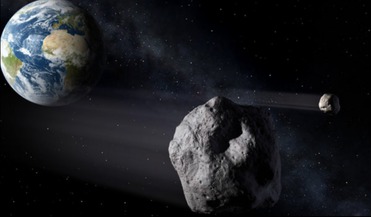 01 July 2016
Asteroid Day was celebrated on June 30 – but what was it all about?
01 July 2016
Asteroid Day was celebrated on June 30 – but what was it all about?
... commonly known as a shooting star). Should an asteroid make it through the atmosphere and collide with Earth, it becomes a meteorite. So, the term “asteroid” is defined by the object's location more than by anything else. And what about the...
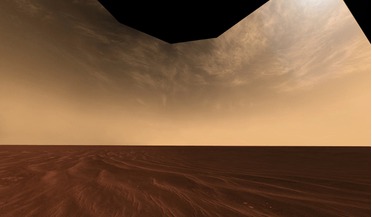 15 August 2016
Was early Mars warmed by cirrus cloud cover?
15 August 2016
Was early Mars warmed by cirrus cloud cover?
... been suggested that large impacts during the Late Heavy Bombardment vaporised water from the colliding meteorite and ground ice mobilised by the impact, that was then later rained out over the planet...
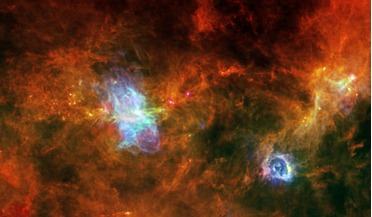 29 August 2016
Dust is the key to producing complex organic molecules in space
29 August 2016
Dust is the key to producing complex organic molecules in space
... long enough to be incorporated into larger bodies, that either become planets or cruise around the galaxy as comets/meteorites? With further research the lifecycle of COMs will help ascertain how resilient these important molecules are...
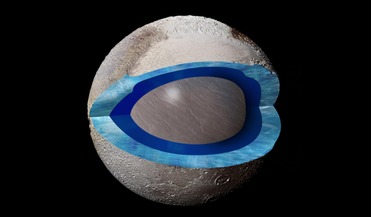 18 November 2016
Pluto's heart is an ocean of slushy ice
18 November 2016
Pluto's heart is an ocean of slushy ice
... like other large basins in the solar system, that Sputnik Planitia was formed by the impact of a giant meteorite, which would have blasted away a huge amount of Pluto's icy crust. As the object impacted the surface...
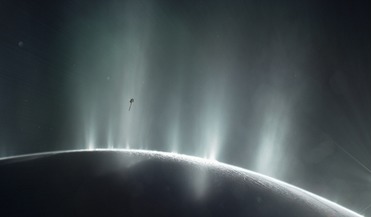 14 April 2017
Cassini finds evidence for hydrothermal vent activity on Enceladus
14 April 2017
Cassini finds evidence for hydrothermal vent activity on Enceladus
...’s ocean, it is possible that they are present as the rocky core of this icy world is thought to be chemically similar to meteorites that contain these two elements. Not only that, but the plumes on Enceladus are associated with...
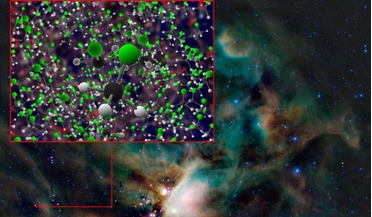 02 October 2017
New molecule discovery may have implications for chemistry on Earth
02 October 2017
New molecule discovery may have implications for chemistry on Earth
..., Cambridge, Massachusetts, have calculated that comets like 67P could have delivered up to 50 gigatonnes of chlorine by way of meteorite impact in our planet’s early history. “Finding the organohalogen Freon-40 near these young, Sun-like stars ...